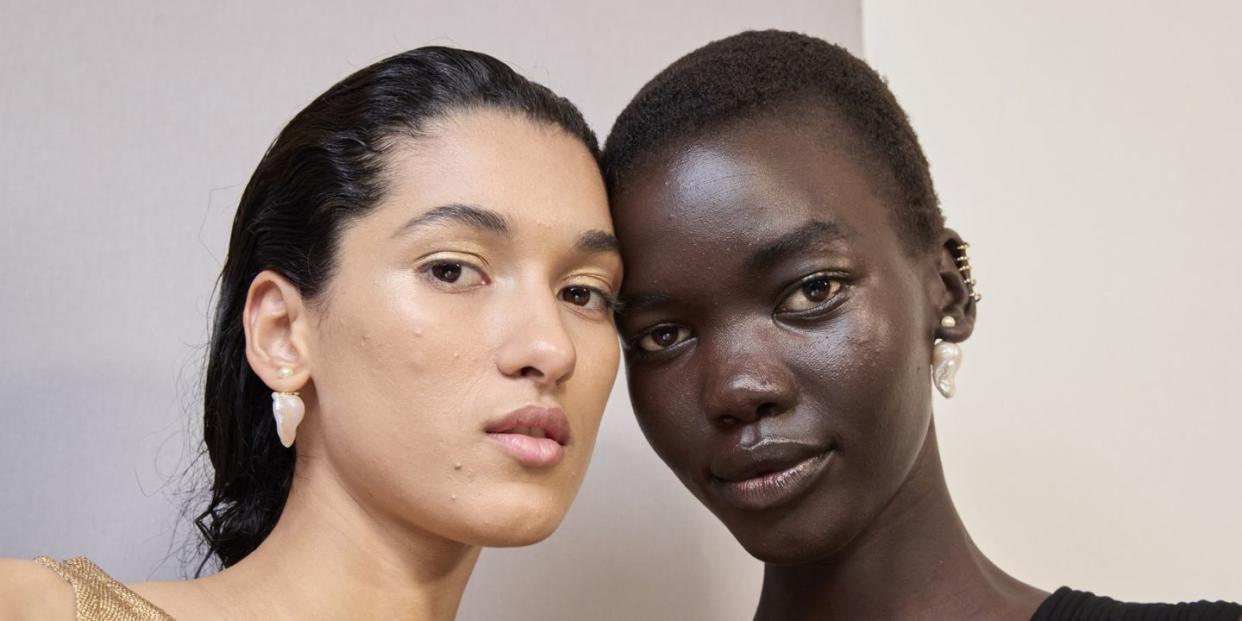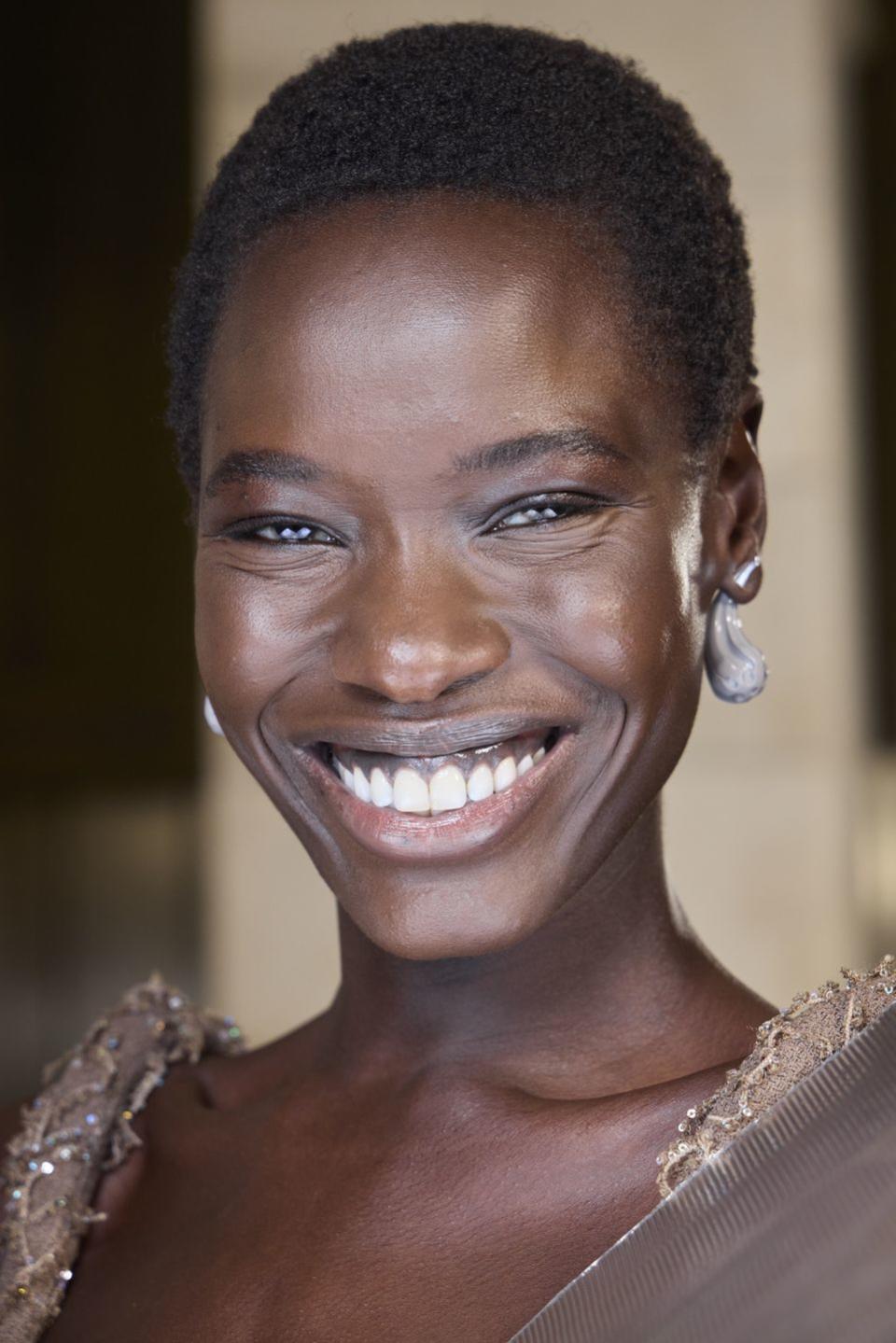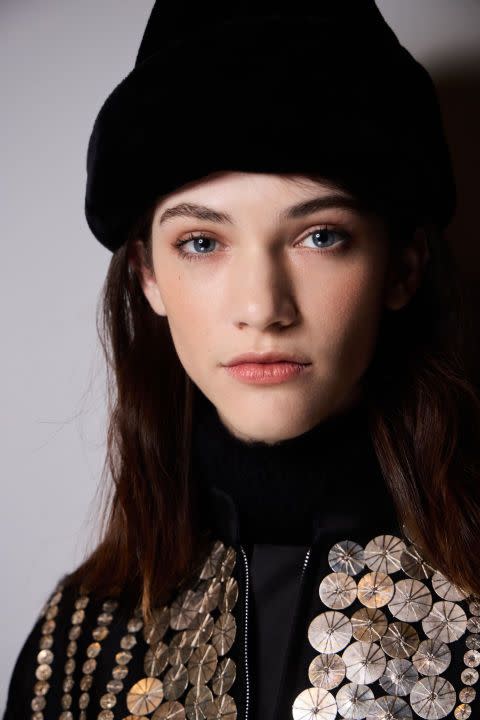#SkinSchool: What the new retinol regulation means for your skincare

As the most commonly known vitamin A derivative, retinol is revered by dermatologists for its ability to not only iron out fine lines, but also help with managing blemishes and softening the appearance of acne scars.
Despite its winning qualities, the abundance of retinol products now available – along with its popularity on social media, which is driving the boom in teens using retinol – means that the risk of retinol overuse is on the rise, especially as customers are getting younger."
But first, a quick primer: retinol falls under the retinoid umbrella. The most potent form is tretinoin (or retinoic acid) which is available via prescription, followed by hydroxypinacolone retinoate, retinaldehyde/retinal, R-rethentinoate, retinol, and finally retinyl propionate, retinyl palmitate, retinyl acetate.
Retinol works by encouraging cell turnover, and doing too much too quickly can lead to a compromised skin barrier. This manifests as redness, irritation, and peeling. For every reputable brand offering plenty of education around how to use its products, there are many who do not, which leads us to the new EU regulations surrounding retinol concentrations in over-the-counter (non-prescription) products. Ahead, industry insiders break down exactly what this means for your skincare serum.

What is the new EU retinol regulation?
According to the new guidelines, EU regulators have put a blanket restriction on all skincare products containing more than 0.3 per cent retinol and bodycare products containing 0.05 per cent retinol. Starting from 1 November 2025, new products that do not adhere to those restrictions cannot enter the EU market.
Brands are given a grace period of three years to reformulate if their products contain higher levels of retinol.
What is driving this new change?
"The new legislation has been put in place in a bid to address consumers’ potential overexposure to vitamin A," says Daniel Isaacs, chief product officer at Medik8, whose Crystal Retinal 1 serum is a firm favourite of beauty editors.
"The regulators have looked at ‘worst case’ scenarios of vitamin A exposure levels; that’s people who eat high amounts of vitamin A in their diet, apply high doses of vitamin A in their skincare and have lots of exposure to vitamin A from other areas such as medicines; and have put the 0.3 per cent retinol cap in place as a precaution to help reduce the risk of overexposure to vitamin A."
According to the EU's Scientific Committee on Consumer Safety report: "Compared to food, the contribution of vitamin A from cosmetics is lower." However, as plastic and reconstructive surgeon, Dr. Ashwin Soni at The Soni Clinic says, effects can be cumulative. "The amounts of vitamin A that is absorbed via skincare is much less than in supplements or from our diet, but if combined in higher doses with these other vitamin A sources, there is the risk of vitamin A toxicity which can impact organs such as our liver or impact our nervous system," he explains.
Will lower doses of retinol be as effective?
In a nutshell, yes. Even better, it does the job with minimal unwanted side effects.
Retinol, when used properly, will deliver positive results at 0.3 per cent. "Studies suggest that a more gradual response, associated with fewer skin irritancy issues, occurred with 0.3 per cent retinol," says Dr. Tiina Meder, whose own brand Meder focuses on maintaining the skin barrier and microbiome.
Plus, retinal and retinyl retinoate, which can be found in Medik8's formulas offer "more effective, rapid results when used in lower concentrations," says Isaacs.
"Patients should also note that stronger doesn’t always mean better regarding vitamin A derivatives," offers Dr. Soni, who's a fan of AlphaRet Overnight Cream which uses a combination of retinoid and alpha hydroxy acids (AHA) Medik8 Crystal Retinal.
Dr. Meder agrees, saying: "I never understood this 'war of concentrations' and always saw it as a pure marketing effort with lack of responsibility for public health. There is no need to use highly concentrated retinol products even for treatment of photo-damaged skin and even less for 'age prevention' which is impossible to prove scientifically anyway."
How much do ingredient percentages matter?
When shopping for skincare, it's important to look at the formula as a whole rather than focusing on one single ingredient.
"Adding a high dose of active to the bottle is easy - stabilising it, maximising potency and penetration whilst minimising irritation is not - most brands aren’t able to," says Isaacs.
Your skincare serum should contain conditioning ingredients (think ceramides and glycerin) alongside active ones. Sensitive skin types should also try to manage the sensitivity first.
"Pay special attention to skin’s barrier function before using potentially sensitising skincare solutions. Most of the time it is possible to find an efficient anti-ageing solution suitable for sensitive skin which can be beneficial for skin health, it is not necessary to use retinol," says Dr. Meder.
Retinol alternatives such as azelaic acid and niacinamide are great for brightening while Dr. Soni recommends introducing "certain peptides (such as Alastin) into a routine which can also boost collagen and elastin levels significantly."

What is the best way to use retinol?
"Start low and go slow," says Isaacs. In general, try using it twice a week for the first two weeks, and then every other night over the next two weeks, and see how your skin responds to it. Follow with a hydrating moisturiser and SPF 50, daily. While exfoliators and retinol can work together, avoid using them at the same time if you are prone to sensitivity, or are new to retinol.
You Might Also Like


